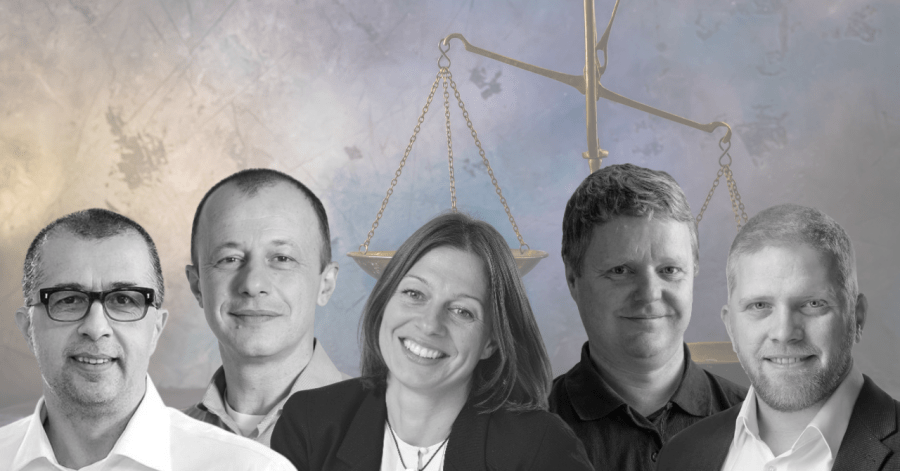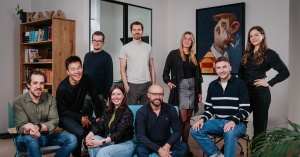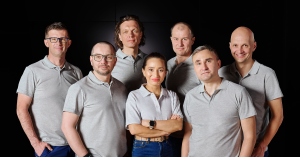For a long while, the technology market overheated into surging valuations. The bull market brought easy and fast money to early stage companies. Now, the scales are tipping. Faced with an economic downturn ahead, we’re segueing to an investor’s market. But what does this mean for entrepreneurs, especially those looking for fundraising in 2022?
While Europe’s venture capital market continued to grow in Q1, and some investors in Southeast Europe reported one of the strongest deaflows of projects, investment activity will likely decelerate in the second part of the year.
For all that, funds will always be there for companies with a good value proposition and differentiating technology. A persevering and customer-centric mindset will be even more appreciated. And yes, companies with existing traction and revenue, as well as a healthy cash cushion, will bear an advantage. But the picture is more complex than that.
The Recursive took a closer look at the Southeast European VC market in 2022 with insights from: GapMinder, the Romanian VC focused on seed and Series A stages; South Central Ventures, the VC focused on tech companies in Southeast Europe, with offices in Ljubljana, Zagreb, Belgrade and Skopje; LAUNCHub Ventures, the early-stage VC fund with focus on South-Eastern Europe and Central and Eastern Europe; Eleven, the early stage Sofia-based VC; and Roca X, the Romanian VC focused on early-stage companies, part of Impetum Group.
Read about:
• How has investment activity evolved in the first half of 2022 – and what are the expectations for the rest of the year?
• What markets and verticals hold the biggest potential in the eyes of investors?
• How can entrepreneurs differentiate themselves to succeed at fundraising in 2022?
The Recursive: How has the fund been navigating the first part of the year, and what are you expecting in the second half?
Dan Mihaescu, Founding Partner of GapMinder: The first semester was as expected, finalizing the deals already under execution and identifying quite a few interesting new ones for the next period. The financing rounds for Druid, Cyscale, Aggero, and Machination.AI are already visible: these four companies attracted $23 million from reputable investors in London, Estonia, and Bulgaria. And two other smaller financing rounds were closed during this period. Probably we will invest in other 1 to 2 companies by the end of July-August.
I think in the second half of the year, US investors will be much more conservative, and the impact will be both in terms of round sizes and valuations but also in terms of investments, while investors from the UK will be slightly less conservative than their US counterparts but still lower valuations than in the US.
We expect to see investment opportunities that are more focused on traction and existing revenue. I believe those companies with a differentiating business and technology will manage in the middle of the year regardless of the macroeconomic crisis.
On the other hand, the pre-seed or early-seed stage companies may be under pressure in the second half of the year. Overall, for entrepreneurs, the second half of the year will be a time of self-assessment and re-adjustment.
In which markets and verticals do you see the biggest potential right now?
I think the fintech and cybersecurity companies are the best-positioned companies in the next period. These companies are usually highly evaluated, but they have relatively more stable evaluations than companies in other verticals; they were not overinflated during the pandemic.
The rest of the companies depend significantly on the level they are and the technology they use to optimize their customers’ business. For example, companies that use a proper machine learning solution to optimize a supply chain or an e-commerce business will still have a good life even if these verticals themselves will be affected. These companies will be more successful in attracting customers and investors versus similar companies that offer solutions without the steroids given by ML. So, the difference will be made by the technology that the companies use.
And the valuation expectations when raising funding rounds.
How can startups and founders differentiate to succeed at fundraising in 2022?
An entrepreneur must consider how to differentiate from the moment of creating the business. Not now! You learn to swim in the swimming pool, preferably when you are young, not in the middle of a stormy sea!
As I said, the best-positioned companies are the fintech and cybersecurity companies. Those companies that are in other verticals, but manage to add value for customers by using automation solutions and machine learning authentically, may also succeed in differentiating.
Companies that manage to bring benefits, especially in the crisis period that started, and cut the overall costs for the customers have a better chance in the next period. At the same time, those companies with customers and a product validated by the market have much more possibilities than those who have not yet validated their product. I guess that the monotonous mantra of “Putting customers first” is the most important part.
Another differentiator would be getting out of denial. Especially valid for entrepreneurs in the technology space who enjoyed fantastic growth years.
This crisis is real, and it is here! Entrepreneurs who focus on customers and cash runway have a chance to go through this crisis well enough.
The Recursive: How has the fund been navigating the first part of the year, and what are you expecting in the second half?
Tatjana Zabasu Mikuž, Managing Partner, South Central Ventures: We just started investing from our new fund, so to a certain extent, the current business climate is playing to our favor. We are an early stage investor, and typically this is the segment where the changes come about with some delay. Nevertheless, our pipeline has been strong in the first half of the year and we expect it to stay strong for the remainder of the year. We do foresee the expectations of the founders with respect to the valuations will be slightly less ambitious. On the other hand, quite a few of our existing portfolio companies were able to raise in the past months at solid valuations, which proves the funds are still there for those with a good value proposition.
In which markets and verticals do you see the biggest potential right now?
We are a generalist fund and have always been focused on early-stage, primarily B2B companies creating tangible value for their customers. This has not changed, and we still see a lot of opportunities for disruption of traditional industries.
In this climate, how can startups and founders differentiate to attract investment?
Probably the same as always – good companies and good founders can attract funding regardless of the business climate.
The market surely was becoming overheated in the past couple of years, it was the founders’ market rather than investors’, and this resulted in both ‘not so good’ companies getting funded and also ‘good companies’ getting funded at valuations that were hard to justify. There will always be funding for exceptional founders, teams, and companies
The Recursive: How has the fund been navigating the first part of the year, and what are you expecting in the second half?
Todor Breshkov, Managing Partner at LAUNCHub Ventures: We are looking carefully into the latest developments. LAUNCHub Ventures have closed 7 deals recently, a result of diligent work over the past 12 months. Although cautious with our decision-making lately, the fund is very active and we will continue to invest.
In which markets do you see the biggest potential right now?
Our core market is SEE and we are seeing an increased pipeline, especially in Bulgaria and Romania.
What in your opinion differentiates startups and founders in this climate?
SEE and CEE companies have been traditionally cost-effective and the current climate won’t affect them dramatically.
True, it’s going to be challenging for them since pressure is expected on the customer side. Yet, they are well prepared to navigate the situation, and we are witnessing precautionary steps taken early on. In regards to new prospects, substantial traction is expected from companies looking for fundraising in 2022.
The Recursive: How has the fund been navigating the first part of the year, and what are you expecting in the second half?
Ivaylo Simov, Managing Partner at Eleven: Currently valuations are under pressure and rounds are starting to take longer to close, but other than that we have seen one of the strongest dealflows of projects ever.
There will be further chilling in terms of investment activity in the second half of the year, as VCs reserve a bigger portion of their capital for follow-on in their own portfolio companies.
In which markets and verticals do you see the biggest potential right now?
Generally the best years for VC funds are during similar crisis periods, when the scales tip to the investors rather than the startups. From the sectors we follow more closely healthcare should be the least affected, while ecommerce and ecomtech are feeling the nervousness of the markets more directly.
However, most startups bring disruption and more efficiency to their industries, so they should generally fare better than more traditional businesses.
What in your opinion differentiates startups and founders in this climate?
One of the most important qualities we look for in startup founders is perseverance. As an old friend used to say: “The best startups are like cockroaches, you can never kill them”.
Only the strongest will survive, if the downturn continues longer. Obviously it helps if they already have a healthy cash cushion or excellent unit economics that can allow them to be close to break even or even profitable.
The Recursive: How has the fund been navigating the first part of the year, and what are you expecting in the second half?
Matei Dumitrescu, General Partner at Roca X: We’ve been very active at Roca X. A VC should not freeze in troubled times as this would not be the best strategy. We are just adapting and riding the wave of change. We focused on our portfolio and facilitated big international rounds for some of our startups, and we’ll soon announce the closing of 3 new international deals.
In which markets do you see the biggest potential right now?
Even if we are still in the Cloud and SaaS era, there’s a huge stake in impact and ESG area or green transformation.
How can startups and founders differentiate to succeed at fundraising in 2022?
They should be resilient, to carefully plan their path and to have the capacity for an awesome execution. They should be agile, flexible and realistic. Seems logical. Funny thing is, there are very few startup founders like this.








